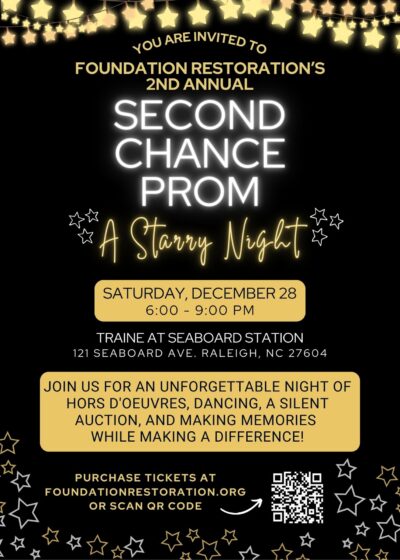By Dr. Jeff Klick
Marriage is a gift from God and mind reading is typically thought of as magic practice. What can these two possibly have in common? For starters, both involve two people. Marriage was given as a gift to Adam in the Garden of Eden to combat his loneliness and incompleteness. Mind reading is attempted to try to figure out what someone is thinking without going through the bother of verbal communication.
Married couples often practice mind reading with mixed results. It is true that as you live with someone for a long time you can actually know what he or she are thinking, sometimes. After 37 years of marriage, my bride and I can complete each other’s sentences and thoughts on occasion. There are still times however, when we guess wrong, and here is where it gets dicey.
Mind reading is a guessing game based on assumptions and preconceived views. We all practice it with people and probably do not even think about it. We drive down the road and we know that that person that just cut us off was not thinking, or they were doing it on purpose. The woman that was short with us at the church service really does not like us, or so we think. Our spouse states something more harshly than we think they should and we know why. Or do we?
Most of us suffer from too many conclusions based on too little information syndrome. We make 100% conclusions on about 1% information. We mind read. However, are we accurate? Do we really know what is going on in the mind of someone else? Do we have all of the facts? Rarely. Yet, we jump to conclusions, assign motives, and usually bad ones to boot. We are judge, jury and prosecutor, and we often hang someone based on circumstantial evidence. Okay, I know we do not really hang them, but we get angry, rejected, hurt, and sometimes retaliate before we really even know the facts. Well, at least I do.
While it does not happen all the time, sometimes God gives us just a little more insight into why the person acted as they did. Maybe the person that was driving rudely had something hot spill in their lap, and they were not thinking about you at all. Perhaps the woman on Sunday had just walked away from someone that shared a tragedy in their life, and she was deep in thought. You just happen to come upon them while they were trying to process or handle a situation, and their aloofness had nothing to do with you. Is it possible that we do not always have all information in our marriages as well?
In marriage, most of us are less guarded with our spouse than we are with others. We know they are stuck with us, and therefore, we are not as concerned with how we speak. Sometimes we do not put up the fences in the conversation that we would with an outsider. We may say something in an unguarded tone with our spouse that we would never use with someone else. I know my wife loves me, she has promised never to leave me, and I know she will not. I do not have to impress her or make her think something special of me because she knows me. As long as we have been married, she knows me very well, and she still loves me. A fact that I am both surprised at and very grateful for.
What I am learning to do is ask the next question. I do not always do well at it, but I am learning. When my wife is harsher than she should be, there usually is a good reason for the behavior. Something has happened that I probably know nothing about. A phone call, email, steady stream of small people complaining, stressful day, or something else has happened to trigger her response. Maybe I did something to bother her, maybe not, but the reaction is there for a reason.
I must learn how not to react to the reaction but seek the cause of the reaction. So many times, we waste tremendous amounts of emotional energy arguing about the reaction. In my wise moments, and for the record, there are not near as many as I would wish, I do not react. I ask the next question.
What’s the next question? It depends. What I need, if I am going to respond properly, is to understand what is underneath the reaction. I can ask, “Why were you so harsh?” but that is typically unwise. A better question is, “Did something happen that hurt you today?” Or perhaps even better is to give her a hug, hold her, and just listen. She will share about her day, an event or something that happened that caused her to react. I can waste a bunch of our limited time together fussing about her behavior, or I can listen and help to soothe the hurt.
It has taken decades of being married to come to a startling conclusion. My wife does not always need my solutions; she needs my understanding. One day my bride placed her hands on my cheeks and spoke in that tone. You know the one guys, the voice inflection that says, “I am going to speak slowly and use small words so you will get it.” She told me, “I don’t need your three solutions to my problem when I am sharing with you; I need a hug and your acknowledgment of my pain.” As a man, that was a strange sentence.
We men tend to think along the lines of solution. There’s a problem; I have the answer. Just ask me, I would be glad to share my wisdom. In fact, I can come up with multiple solutions to just about any problem. My wife did not want my solutions; she wanted my understanding, and that conversation has helped me to learn to ask the next question.
I am not a mind reader. I am a husband that needs to learn how to listen to his wife. If I ask the right questions, she will reveal her mind to me. What she shares is so much clearer and more accurate than what I guess with my mind reading skills. As hard as it is for me to understand, my wife many times does not need my answers or mind reading skills, she just needs a hug.
Copyright © 2013, Foundation Restoration. ALL RIGHTS RESERVED. No reproduction allowed without written permission from Foundation Restoration and/or the author.






Leave A Comment